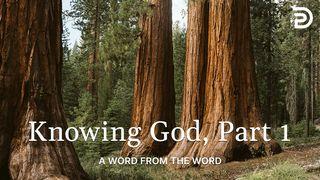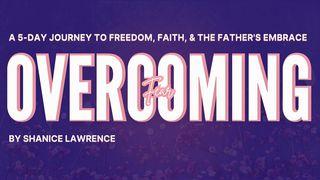The Heart Of Paul’s Theology: Paul And His TheologySample

Paul’s Eschatology: Ephesians 1:21
To see how we are expanding the term “eschatology” to include more than the second coming of Christ, we have to turn our attention to the structure of Paul’s eschatology. How did Paul conceive of the last days, or the end of time? Our exploration of this topic will divide into three parts: the origins, the development, and themes of Paul’s eschatology. Let’s look first at the origins of Paul’s eschatology.
In Paul’s day, Jewish theologians commonly thought that the Old Testament divided world history into two great ages. The first of these was the present age of sin and trouble, which they termed “this age,” or in Hebrew, olam hazeh. “This age” reached its low point in Israel’s suffering the divine curse of exile from the Promised Land. Not surprisingly, Jewish theologians spoke of “this age” in very negative terms.
But the rabbis also believed that there would be a future age of blessing to follow this age of trouble. They called this future age “the age to come,” or in Hebrew, olam haba. In the age to come, God would finally fulfill all his promises of blessings to Israel.
Most Jewish groups in Paul’s time believed that the appearance of the Messiah would stand as the crucial turning point between these ages. When the Messiah came, he was to bring the day of the Lord, the day when God would ultimately bless his people and destroy his enemies. This was the day that would usher in the age to come.
When we read Paul’s epistles, it becomes apparent that he also held this same basic two-age view of history. In fact, he directly referred to the age in which he lived as “this age” on at least twelve occasions. For example, Paul referred to Satan as “the god of this age” in 2 Corinthians 4:4. And he spoke of the pagan philosopher as “the philosopher of this age” in 1 Corinthians 1:20.
Similarly, Paul used the expression “the age to come” to refer to the future age when final judgments and blessings will come to the human race. For instance, in 1 Timothy 6:19 Paul encouraged believers to be faithful in order to lay for themselves “a firm foundation for the coming age.” And in Ephesians 2:7 he said that God raised Christ from the dead so that “in the coming ages he might show the … riches of his grace.”
Perhaps the best example of Paul’s two-age thinking appears in Ephesians 1:21. There he referred explicitly to both ages when he wrote that Christ was seated:
… far above all rule and authority, power and dominion, and every title that can be given, not only in the present age but also in the one to come (Ephesians 1:21).
Scripture
About this Plan

This reading plan explores Paul's theology, how his beliefs related to his ministry as well as his central theological outlooks.
More
We would like to thank Third Millennium Ministries for providing this plan. For more information, please visit:
http://thirdmill.org
Related Plans

A Word From the Word - Knowing God, Part 1

Ruth: A Redeemer Who Fills All Emptiness | Video Devotional

Imposter Syndrome: You Are Who God Says You Are

Grace for Your Pace - How to Burn on Instead of Burn Out

From Need to Maturity

Rest for the Soul: 8 Days With Jesus

The Generosity Practice

Overcoming Fear: A 5-Day Journey to Freedom, Faith, and the Father’s Embrace

An Encounter With Jesus
